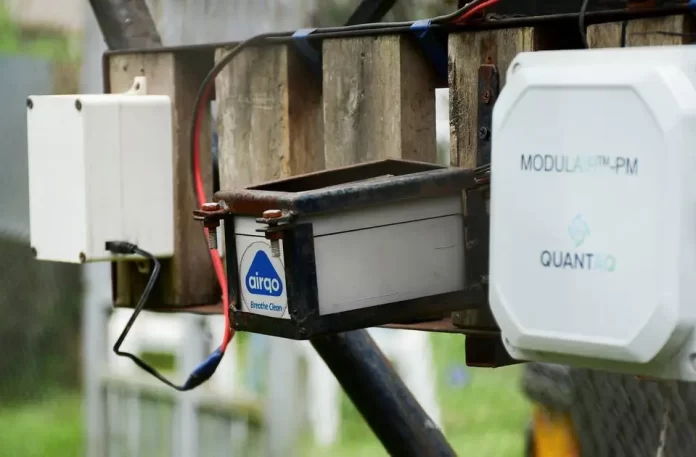The Associate Professor of Makerere University, Engineer Bainomugisha of Computer Science, and the founder of AirQo led a team of tech-savvy engineering and computer science students in developing a solution that is assisting cities to monitor air quality.
According to Bainomugisha, as an alternative to prohibit expensive imported equipment, the tech-savvy engineering and computer science students at Makerere University built a low-cost air quality monitor called AirQo, which is to gather data on air pollution levels, types of air pollutants, and analyzing and forecasting air quality data for international standards.
“Countries in Sub-Saharan Africa lack capacity to collect any usable data on air quality due to the prohibitive cost of air monitoring systems,” Bainomugisha said.
“Without data, we cannot establish the extent and effect of air pollution in our cities, thus it becomes hard to address the problem, and this was the major motivation behind the low-cost air quality sensors being produced at Makerere University,” he added.
Bainomugisha said that, for cities like Kampala and Nairobi, the data collected by AirQo monitors help authorities develop policies, strategies, and legislation to control air pollution and mitigate its effects amid the increase in the city’s population.
Bainomugisha explained that the concentration of particles in the air can be measured with the help of AirQo’s air quality monitoring equipment, which gathers air samples for analysis using light scattering technology.
He added that, the data is sent to an AirQo network in the cloud, which calculates the local pollution levels. PM2.5 and PM10, a combination of solid air particles that make up the majority of air pollution in African cities, may be measured with AirQo sensors. Humidity and barometric pressure are just two examples of the climatic parameters that are measured by the screens.
Gideon Lubisia, an AirQo’s international operations noted that, with the mobile app, one is able to receive notifications on the quality of the air they breath in their cities to know whether it’s safe or not.
Paul Njogu, a Nairobi Air Research and Data Committee Chair said that, the technology is helping cities make notable progress in managing Kenya’s ambient air pollution.
However, Bainomugisha said that, in 2019, AirQo won the Google AI Impact challenge that came with a US$1.3 million cash prize, while the AirQo mobile App won the 2020 World Meteorological Organization Weather Award.
Although Makerere University’s AirQo air monitors were conceptualized and developed in 2015, production didn’t start until 2019.
Over 187 air quality monitors have been installed by AirQo in Kampala, Gulu, Jinja, and Fort Portal. The Air 28 quality monitors built by Makerere are in operation in the Kenyan cities of Nairobi and Kisumu. Uganda, Kenya, Nigeria, Cameroon, Burundi, Ghana, Mozambique, and Senegal are among the eight African countries with selected towns where 160 monitors have been installed.















